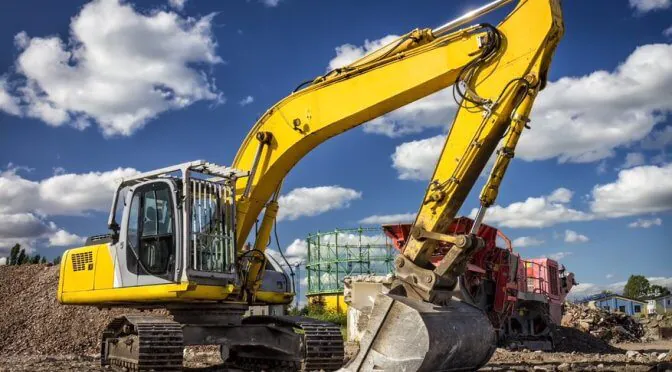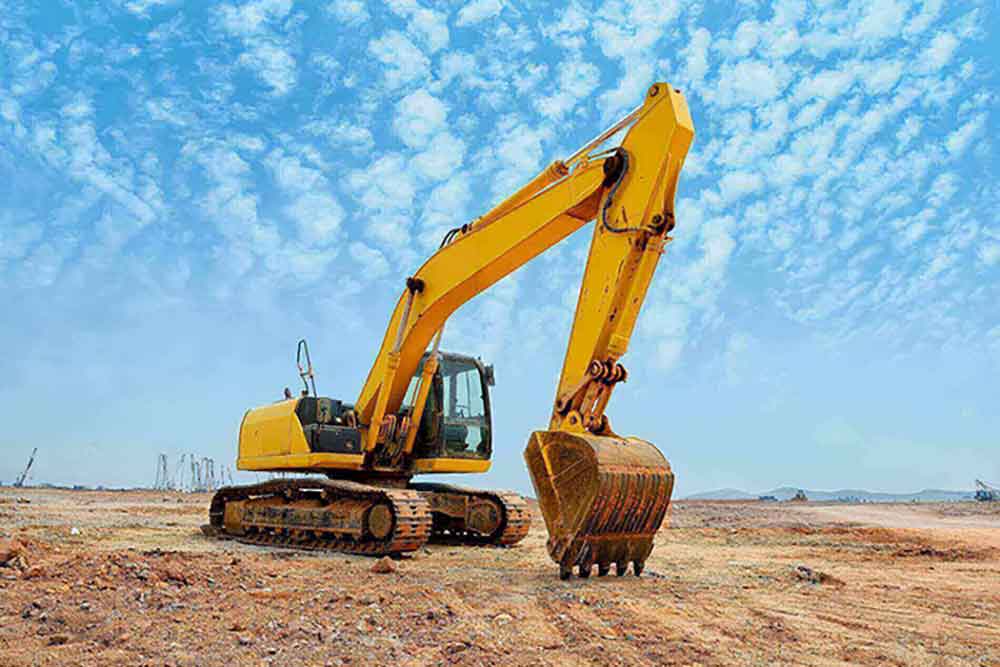The Essential Guide to Renting Excavators for Building And Construction Projects
Renting excavators for building and construction jobs is a vital decision that requires a thorough understanding of different aspects to make sure both performance and cost-effectiveness. From selecting the proper excavator type and size to working out rental terms and making sure safety methods, each action plays a crucial role in the general success of your project. Understanding these components not only optimizes efficiency yet additionally assists in decreasing expenditures. As you take into consideration the intricacies of renting out excavators, it's important to comprehend the nuances that can substantially affect your job. What are these subtleties, and exactly how can they affect your building outcomes?
Kinds Of Excavators
Excavators can be found in different types, each created to carry out particular tasks in building jobs. The most usual type is the typical excavator, also recognized as a crawler excavator, which is ubiquitous on the majority of task websites for its convenience in trenching, product, and excavating handling. These makers operate tracks, giving stability and wheelchair over irregular terrain.
An additional vital version is the mini excavator, valued for its portable size and dexterity. Suitable for tiny to medium-sized projects, mini excavators master restricted rooms where larger devices would have a hard time. They are often utilized for landscape design, energy work, and small-scale demolition.
For jobs needing extensive reach, the long-reach excavator is crucial. Furnished with a longer boom and arm, these machines can operate in areas that are challenging to gain access to, such as across water bodies or deep excavations.
Lastly, there are specific excavators like the suction excavator, which utilizes high-powered followers to vacuum up soil and particles, making it perfect for fragile underground energies. The dragline excavator, an additional specialized type, is often used in massive civil design tasks like canal dredging and mining due to its capacity to lift hefty loads over lengthy ranges.
Choosing the Right Dimension
Picking the ideal dimension of an excavator is important for the efficiency and success of any kind of construction project. The size affects not only the equipment's capacity to take care of particular tasks however additionally the functional prices and website ease of access. Excavators are available in numerous sizes, from portable devices suitable for small-scale domestic tasks to huge equipments made for considerable commercial or commercial endeavors.
When deciding on the excavator dimension,Comprehending the scope of the task is important. For restricted areas or tasks needing precision, such as trenching for energy lines, a portable or small excavator is perfect. These equipments offer dexterity and ease of maneuverability without endangering on power. Alternatively, large earthmoving operations, like roadway construction or big foundation digs, require making use of big or basic excavators. These models provide enhanced reach, greater pail capability, and premium digging pressure.
Think about the site's terrain and gain access to factors also. Larger excavators might deal with difficulties in limited or irregular locations, making smaller sized designs extra functional. By completely reviewing these factors, construction managers can guarantee they select an excavator dimension that optimizes productivity and minimizes task hold-ups.
Rental Agreement Fundamentals

Similarly essential is the in-depth break down of expenses. This includes the day-to-day, weekly, or month-to-month rental prices, and any kind of added fees such as shipment, cleaning, or fuel fees. It's a good idea to ask about potential fines for late returns or damages to prevent unforeseen costs.
The problem of the excavator at the time of rental need to also be well-documented. Ensure the agreement consists of a comprehensive examination record that keeps in mind any kind of pre-existing damage. This secures you from obligation for issues that were present before your rental period began.
Insurance protection is an additional crucial component. Validate whether the rental business provides insurance coverage or if you need to protect your own policy. Understand the terms for equipment upkeep and fixings. Recognizing your duties for maintenance during the rental duration will certainly assist keep the excavator in optimal working condition, reducing downtime and enhancing job effectiveness.
Upkeep and Security Tips
When managing excavators on a construction website, sticking to appropriate maintenance and safety and security procedures is crucial for guaranteeing both operational efficiency and employee security. Lubing relocating parts and ensuring fluid degrees are optimum can protect against pricey downtime and expand the device's operational lifespan.
Precaution are similarly important. Operators equipment used in building construction ought to be thoroughly trained and accredited to deal with excavators, comprehending the device's restrictions and controls. It's important to perform everyday examinations, concentrating on safety features such as alarm systems, seatbelts, and emergency situation shutoff switches over. Furthermore, maintaining a orderly and clean worksite lowers the risk of crashes. Clear communication protocols, including hand signals and radio interaction, ought to be developed to collaborate movements and procedures properly.
Implementing a durable upkeep routine and cultivating a society of safety and security can alleviate risks significantly. Always seek advice from the construction mixer machine price supplier's guidebook for particular maintenance intervals and safety guidelines. By prioritizing these elements, building and construction tasks can proceed smoothly, minimizing disruptions and making certain a safe working environment for all personnel included.
Cost-Saving Strategies
Effective cost-saving approaches are vital for taking full advantage of the roi when renting excavators for building projects. One key method is to conduct a comprehensive requirements analysis prior to leasing. Recognizing the details needs of your project aids in picking the appropriate type and size of excavator, avoiding unneeded expenses on overly customized or oversized equipment.
Many rental companies supply versatile rates frameworks, especially for long-lasting leasings. Establishing a good relationship with the rental supplier can also result in commitment discounts and far better terms.

Lastly, think about the complete cost of possession, consisting of insurance, transport, and gas. Bundling these services with the rental contract can frequently cause a much more desirable overall package. By implementing these techniques, building and construction jobs can accomplish significant expense effectiveness while ensuring functional effectiveness.
Conclusion
In conclusion, the calculated option and leasing of excavators for construction tasks require an extensive understanding of excavator kinds, ideal sizing, and the details of rental contracts. Executing cost-saving strategies via thorough preparation and negotiation can even more boost job productivity while controlling expenses.
From selecting the ideal excavator type and dimension to negotiating rental terms and guaranteeing security procedures, each Recommended Site step plays an essential duty in the overall success of your project. equipment rental company Bremen GA. The most common kind is the conventional excavator, also recognized as a spider excavator, which is ubiquitous on most job sites for its flexibility in product, trenching, and excavating handling. By completely assessing these aspects, construction managers can ensure they choose an excavator size that enhances efficiency and minimizes project delays

Understanding your obligations for upkeep during the rental duration will certainly aid keep the excavator in optimum working problem, lessening downtime and enhancing project effectiveness.
In final thought, the calculated choice and leasing of excavators for building and construction jobs require a detailed understanding of excavator kinds, proper sizing, and the details of rental agreements.